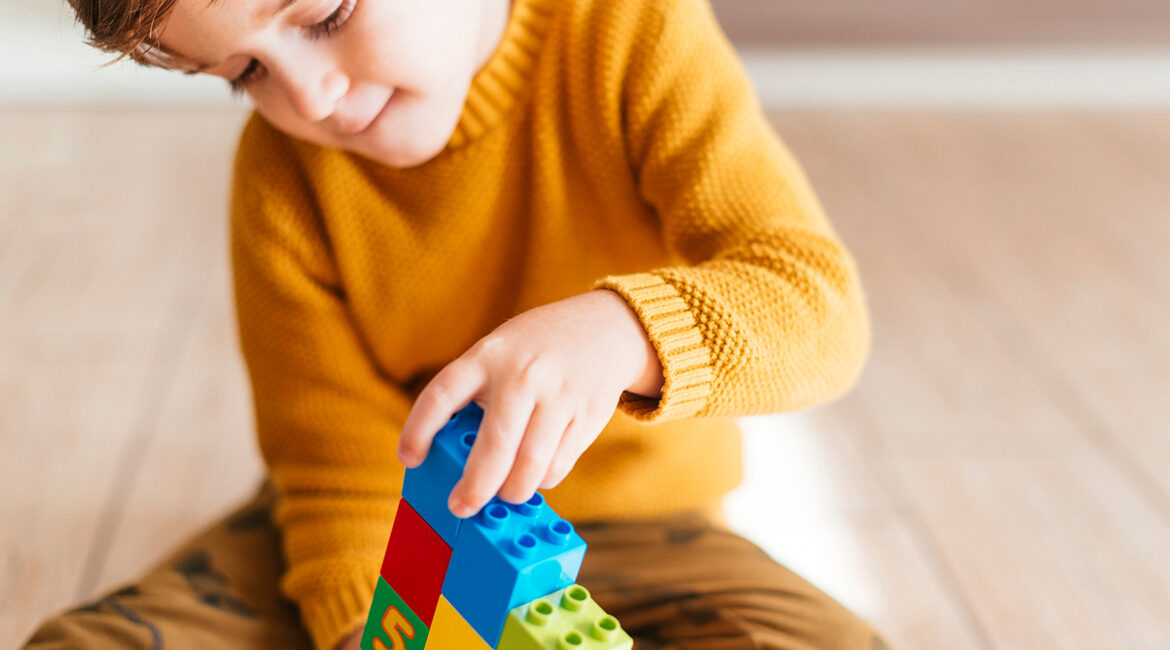At Right Start Inc, we know that the early years of a child’s life are crucial in their development. The brain is constantly growing and changing, allowing new skills to be learned through contact with the child’s environment.
In the early years, a child’s brain creates many simple neural circuits which over time are refined into more complex, specialized pathways. Autism Spectrum Disorder as a neurodevelopmental disorder can impact early-stage development and can limit development in several areas.
We believe most parents would agree it’s amazing how fast your baby grows and changes. The first smile. The first laugh. The first time they reach for you.
The reality is your baby will start to hit their developmental milestones quickly and they’ll tend to hit lots of milestones simultaneously. When your baby is three months old; they’ll start to grasp objects in their hand. they’ll hold up their head and they’ll enjoy snuggling in your arms.
These are some examples of three different developmental skills: fine motor, gross motor and sensory. If you’re a first-time parent you’ve probably heard a lot about “milestones,” especially the “red flags” to look out for as your baby develops and gets older.
Developmental milestones are important because these skills are vital to how your baby will experience and interact with the world around them. If you close your eyes and imagine their world, they will need all their skills to bring that image to fruition.
Fine Motor Skills
Fine motor skills are small movements like holding a pencil, coloring with crayons, stringing beads or playing with Legos.
The ability to hold and manipulate small objects is important because your child will need these skills for self-care, like using utensils to eat, buttoning buttons, zipping zippers, writing, etc.
Gross Motor Skills
Gross motor skills are larger movements that require strength and coordination like crawling, jumping, skipping, walking, running, waving, pulling, etc.
These skills are carried out with the whole body as opposed to fine motor skills that are carried out with smaller muscle groups.
Sensory/Social Skills
These skills are what we use to communicate with the world around us. Skills under this category include hearing, tasting, touching, seeing and smelling. It’s not just the action, but also the processing.
How is this information received and what does the brain/body do with it? From a cognitive perspective, sensory skills are the foundation for learning.
Timeline of Milestones
When it comes to milestones, remember that every baby is different and they develop at different speeds. Here are some general guidelines about the first skills you should observe.
By 3 Months
Fine Motor Skill – Your baby can hold a small object in hand.
Gross Motor Skill – When put in a sitting position, your baby can raise her head
Sensory Skill – When you hold your baby you can feel her body relax and she will cuddle
By 5-6 Months
Fine Motor Skill – Your baby should be reaching for toys and possibly holding their toys briefly, they can follow objects with their eyes in all directions.
Gross Motor Skill – They roll from back to side and roll from back to front, they can raise chest and upper part of abdomen during tummy time.
Sensory Skill – They respond with sounds when people talk and smile at them, they can be calmed by their caregiver when upset
By 8 Months
Fine Motor Skills – They keep their hands open and relaxed most of the time, they are starting to pick up small foods.
Gross Motor Skills – They can sit up by themselves and hold up their head with ease
Sensory Skills – You baby knows their own name and responds by looking when called, they have favorite toys and are curious to explore new toys.
By 12 – 15 Months
Fine Motor Skills – They can give a toy to caregiver when asked, they like to explore, they can put objects (like toys) in a container.
Gross Motor Skills – They reach for toys while sitting, they can walk alone, they can squat and stand up
Sensory Skills – You baby likes attention from others and exhibits behaviors to get reactions, they like hugs and affection from familiar people.
Consider
If a child is not reaching these general milestones, an examination by your pediatrician, and potentially other professionals familiar with child development would be recommended.
Other medical concerns may need to be ruled out before testing for autism or other developmental delays and/or disabilities.
In the event that autism is suspected, the early signs will usually be noticeable within the first two years. Social difficulties in the first year are commonly noticed by parents.
These may include the child not responding to their own name, not babbling or cooing, not smiling back at parents, making poor eye contact and not tracking toys with their eyes.
There are also other important milestones that can indicate a higher chance of autism. These include some language being learned but then lost, or a plateau effect where a child reaches some milestones as expected, and then fails to make further progress.
Please contact Right Start, Inc. today at (718) 375-2505 for further information, or if you have any questions/concerns about your child not reaching the typical developmental milestones outlined above.

